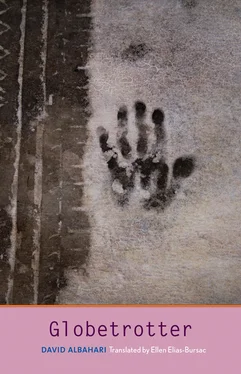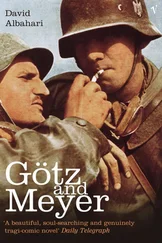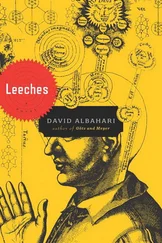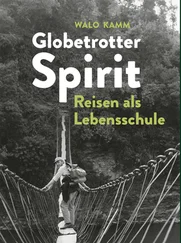Nothing, only silence. Most often it doesn’t matter where a person is, I thought; it matters much more where he is not. The art of absence, I felt like saying, is more important than the skill of presence. Showing up at the right moment, I said, is worth less than a no-show at the right moment. My voice sounded fragile and hollow in the empty studio, like the croak of a frog. True, I thought, it is good at times to be an enchanted frog, especially when a person knows for certain that he will find a prince or princess who will not be squeamish. I attempted to find the right order for the drawings — not chronological, naturally, because there is nothing simpler than laying out a chronology, but instead an order that gradually, with barely visible gradation, led to the acquisition of a broader and, I hoped, more profound insight into the meaning of what the face was or could be. I wasn’t certain whether I was actually ordering the drawings to see something that had earlier eluded me or to squelch in myself the thought of destruction, but the work slowly absorbed me, pulled me away from everything else, and when I looked up, I saw the shadows of twilight advancing. I couldn’t believe it, because that would mean that I had spent five, maybe six, hours engrossed in mastering the structure of the given form, so I opened the door, and out I went but — no doubt about it: darkness was silting in among the conifers, thinly still, though nearer the forest floor along the path it had already started thickening.
Wonder of wonders, I was not hungry, though I couldn’t remember when I’d last eaten. I went back to the studio, clicked on the light, switched on the electric stove, and put the teapot on. The drawings were on the table, arranged finally in an order that led in a trajectory toward greater openness, so that the first drawing, the one on the top, showed only a single line, and the last, on the bottom, depicted the entire face. Several drawings on the bottom, perhaps the last six, showed the whole face, of course, but I had succeeded, or at least I believed I had succeeded, in pinpointing the subtle differences that led from the first of them to the last, which was, at the same time, the final drawing made, the end of it all and the beginning of everything else, as I had read on the spine of a book many years ago. I put a teabag into a cup and poured hot water over it. The teabag floated for a moment on the surface and then began to sink, leaving behind it a reddish swirl as if it were burning. I shouldn’t have been thinking of fire, incompatible as it is with water, I should have been thinking of blood, a trace of blood, undulating and lithe in the water currents, like the liquid around it in part, but still distinct. I thought, however, that I should go to Daniel Atijas’s room, lean my ear against the door, and listen to hear if he was really there, as he had promised, or out roaming through the Art Centre and Banff, attempting, finally, before his departure, to become somebody else. And I did leave the studio, leaving the drawings piled out on the tabletop, because there was no longer any need, I told myself, to stow them away, but I did not go to Lloyd Hall, where our rooms were; instead I headed deeper into the woods until I found myself surrounded by total darkness.
The time has come, I thought, to admit that I have lost. I could not remember what it was I had lost, but that was not what mattered; the point was the act of losing, the feeling that something had been permanently taken away and would never come back. I cannot say how long I stayed in the darkness, in the underbrush, among the pines. When I finally returned, I didn’t stop till I reached my room. I took off all my clothes, lay down, lifted my arms over my head, and sank into sleep before the sheets had time to get warm. I got up several times that night: twice because of bladder pressure, once because of a dream so real that I had to tell myself, mid-dream, to wake up, and once because of a feeling, which proved false, that someone was sitting on my legs. The dream had to do with something that happened years ago, and while I waited, lying on my back, to go back to sleep, I couldn’t find any points in common with what had just happened, unlike what I understood about the feeling of weight on my shins, which I was certain was a sign of the presence of Daniel Atijas’s astral body in my room. When I opened my eyes, I couldn’t see anything, and I wasn’t sure whether astral bodies leave a trace. The weight had, meanwhile, let up, though a mild pain kept hovering around my shins, preventing me from sinking into sleep. Outside, it was almost light. The depth and sharpness of the azure of the sky promised a beautiful day, as I could tell from experience, which, under any other circumstances, would have delighted me and hurried me along through the getting-up and morning rituals, but this morning I had been hoping for rain, and I took the promise of the beauty of the day as betrayal.
Then the phone rang. I reached over, picked up the receiver, said hello. There was still a chance that something might change, that some little wheel might slip from the pre-set trajectory of the world. For a moment there was nothing audible in the receiver, and then a man’s voice apologized, said it was the wrong number, and hung up. I was convinced that the voice belonged to Ivan Matulić’s grandson, that he had found a way to persuade the staff members at the Art Centre switchboard to connect him so early to one of the guests but by mistake had given my room number instead of Daniel Atijas’s. I put the receiver back in the cradle, pressed my left hand to my chest, and did what I could to calm the pounding of my heart. To no avail, of course, because the heart does what it will, regardless of what we offer it as a measure of love or hope. I longed for the phone to ring again, to have the voice make the same mistake; and this time I’d listen carefully to be sure it was Ivan Matulić’s grandson. Nothing happened except my eyelids growing heavy, so I had to get up to escape slipping back into sleep. On my way to the bathroom my heart stopped pounding, which made it possible to urinate in peace, though afterward I had to wipe two drops of urine off my left thigh with a tissue. Our agreement from yesterday had been to meet for breakfast at nine o’clock sharp. Ivan Matulić’s grandson needed less than an hour and a half to drive from Calgary to Banff, which meant, as I confirmed with a quick glance at the clock, that he would be setting out soon. I looked at myself in the mirror, tucked my hair behind my ears, then stuck out my tongue and examined it carefully.
Someone told me or I read somewhere that the tongue is the most reliable indicator of changes in the functioning of the human organism, but though I had been staring at its reflection for years, I had learned nothing from it yet. I remembered how one of Nabokov’s characters had arrived at similar insights after carefully studying his excrement, but I had never been able to persuade myself to do that, and I always lowered the lid on the toilet bowl before I flushed. I laced up my hiking boots, packed a light jacket in my backpack, tossed in a pair of clean socks, and though all that didn’t take long, I was late by the time I got to the dining hall. Daniel Atijas was already seated at the table eating cornflakes and leafing, as I later saw, through a book with descriptions of mountain trails in Banff and the surrounding area. Without taking off my backpack I took two rolls, a pat of butter, and a little packet of honey, put them on a tray, took them to the table where Daniel Atijas was sitting, went back for coffee and again for sugar, and then sat down. All that time Daniel Atijas hadn’t looked up from his book. He’d lick his finger, turn the page; sometimes he’d flip to the index at the back or to the table of contents at the beginning. I sliced open the roll, spread the left half with butter and the right half with honey, then put them back together and took a bite. Crumbs dropped to the table, some floated to the floor, one bounced as far as the edge of Daniel Atijas’s book. A voice behind me mentioned stars, but when I turned, I didn’t see anyone. Daniel Atijas lifted his hand slowly up and behind his head, thrust it under his collar, and scratched. The dining room filled, it got noisier, and just as I had begun to hope that Ivan Matulić’s grandson wouldn’t show, there he was.
Читать дальше







![David Jagusson - Fesselspiele mit Meister David [Hardcore BDSM]](/books/486693/david-jagusson-fesselspiele-mit-meister-david-har-thumb.webp)




